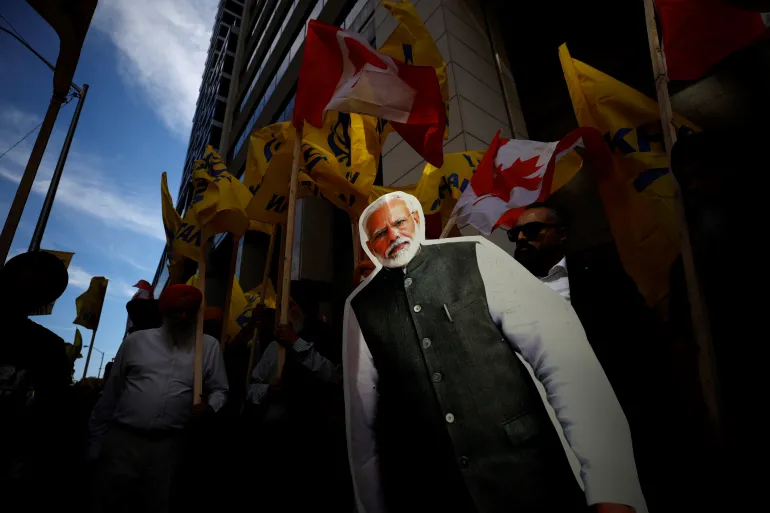Canada’s Prime Minister Justin Trudeau has accused India’s government of orchestrating violence in the country, the latest chapter in a growing rift over New Delhi’s alleged targeting of Canada-based Sikh separatist groups.
Trudeau levelled the charges during an inquiry on foreign interference Wednesday, saying there are “ever clearer indications” that India violated Canada’s sovereignty by targeting Sikh dissidents in its territory.
India’s actions, Trudeau said, are a “horrific mistake”.
The statement comes two days after India and Canada kicked out each other’s top envoys over the rift, which started with the assassination of Sikh separatist leader Hardeep Singh Nijjar in Vancouver in June 2023.
Later that year, Trudeau stated that Canada obtained credible evidence. This evidence linked Indian agents to the assassination of Nijjar. Nijjar was a Canadian citizen who advocated for a Sikh homeland in the form of an independent Khalistani state.
Canadian authorities have since arrested four Indian nationals in connection with the murder, which New Delhi has repeatedly denied involvement in.
On Monday, India again rejected claims linking it to Nijjar’s killing, labeling him a “terrorist.” It called the allegations “preposterous” and a “strategy of smearing India for political gains”.
However, Trudeau spoke at Wednesday’s inquiry. He stated that Nijjar’s murder was part of a more extensive Indian operation. Indian government representatives systematically targeted dissidents inside Canada.
“Violence towards Canadians … has been enabled by and in many cases directed by the Indian government,” said the Canadian premier, citing a national police investigation. He added that New Delhi, when presented with the allegations, had simply doubled down “on attacks against this government”.
While Canada’s government does not want to pick “a fight with a significant trading partner”, Trudeau said he would not waver when “standing up for Canadian sovereignty”.
Also See: Canada-India Tensions Rise Over Expelled Diplomats
US accusations
India’s government has also faced accusations from the United States of attempting to assassinate a Sikh separatist on its soil. In November 2023, the US Department of Justice announced charges against Indian national Nikhil Gupta. He allegedly plotted to target Sikh American activist Gurpatwant Singh Pannun. The Department claimed that an Indian government employee and others coordinated the effort.
On Wednesday, a US State Department spokesperson said a meeting between the US and India regarding a probe into the foiled plot was productive
This news is sourced from Aljazeera and is intended for informational purposes only.






